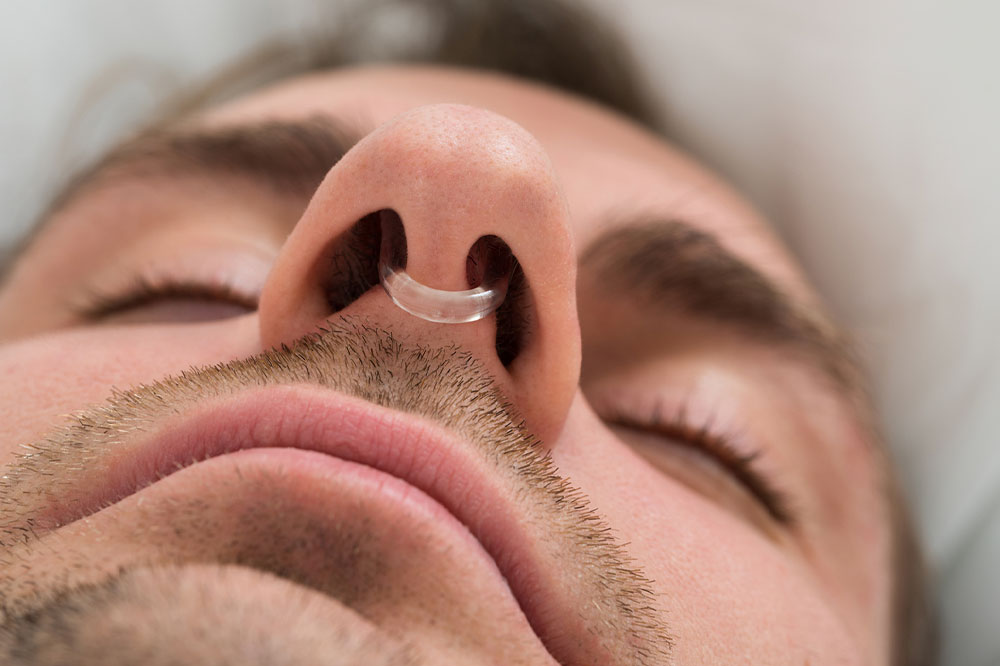
Follow these 8 tips to stop snoring
Are loud snores keeping you up at night? Whether you are a sleep-deprived partner or someone who is bothered by their own snores, it is important to address the cause and find suitable solutions to get uninterrupted sleep. Snores are sounds triggered by obstructed breathing. From lifestyle changes to tried-and-tested remedies, various approaches can help clear the nasal passages. So, here are a few tips to follow for a quiet bedtime:
Fix the sleeping position
Sleeping on your back can worsen snoring, as it allows the tongue and soft tissues to collapse into the airway. Try sleeping on your side. You can get pillows designed to keep you in the correct position to breathe easily.
Clear congestion
Nasal congestion from allergies or colds can restrict airflow and cause snoring. Use saline nasal sprays, nasal strips, or a humidifier to keep your nasal passages clear and lubricated. Nasal strips are among the most common options to stop snoring, but they may not work for everyone.
Stay hydrated
Dehydration can lead to the production of thicker mucus, narrowing the airways and exacerbating snoring. So, drink plenty of water throughout the day to keep your air passages moist.
Follow a bedtime routine
Establishing a regular sleep routine helps regulate the body’s internal clock leading to better sleep quality. Aim for a consistent bedtime, allowing for 7 to 9 hours of uninterrupted sleep each night.
Elevate your head
Elevating your head by using an extra pillow or adjusting the angle of your bed can help reduce snoring. This slight elevation opens up the airway and eases breathing.
Try anti-snoring devices
Anti-snoring devices like nasal dilators, oral appliances, and snoring chin straps claim to keep the airways open, improve breathing, and minimize snoring. However, you should consult a doctor to determine the most suitable option for you. Additionally, w eighted blankets provide deep pressure stimulation, promoting relaxation and reducing anxiety. By calming the nervous system, these blankets can contribute to better sleep and potentially reduce snoring.
Explore natural remedies
Natural remedies, such as peppermint oil, eucalyptus oil, or chamomile tea, may help soothe nasal passages and reduce snoring. However, it is important to consult a healthcare professional before trying such remedies.
Consult a doctor
If snoring persists, it is important to consult a healthcare professional who can assess your situation, identify any medical conditions contributing to snoring, and recommend appropriate treatment.







